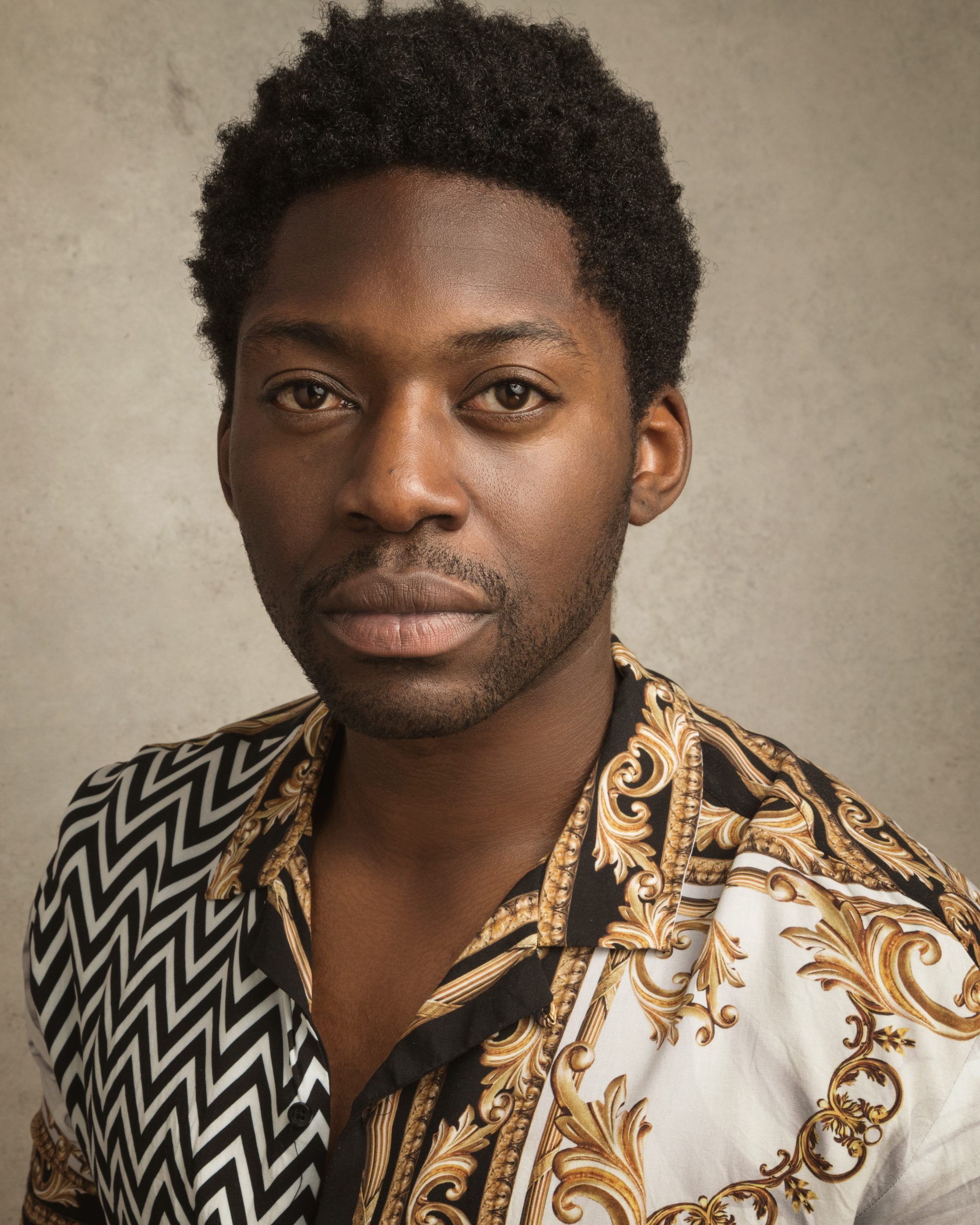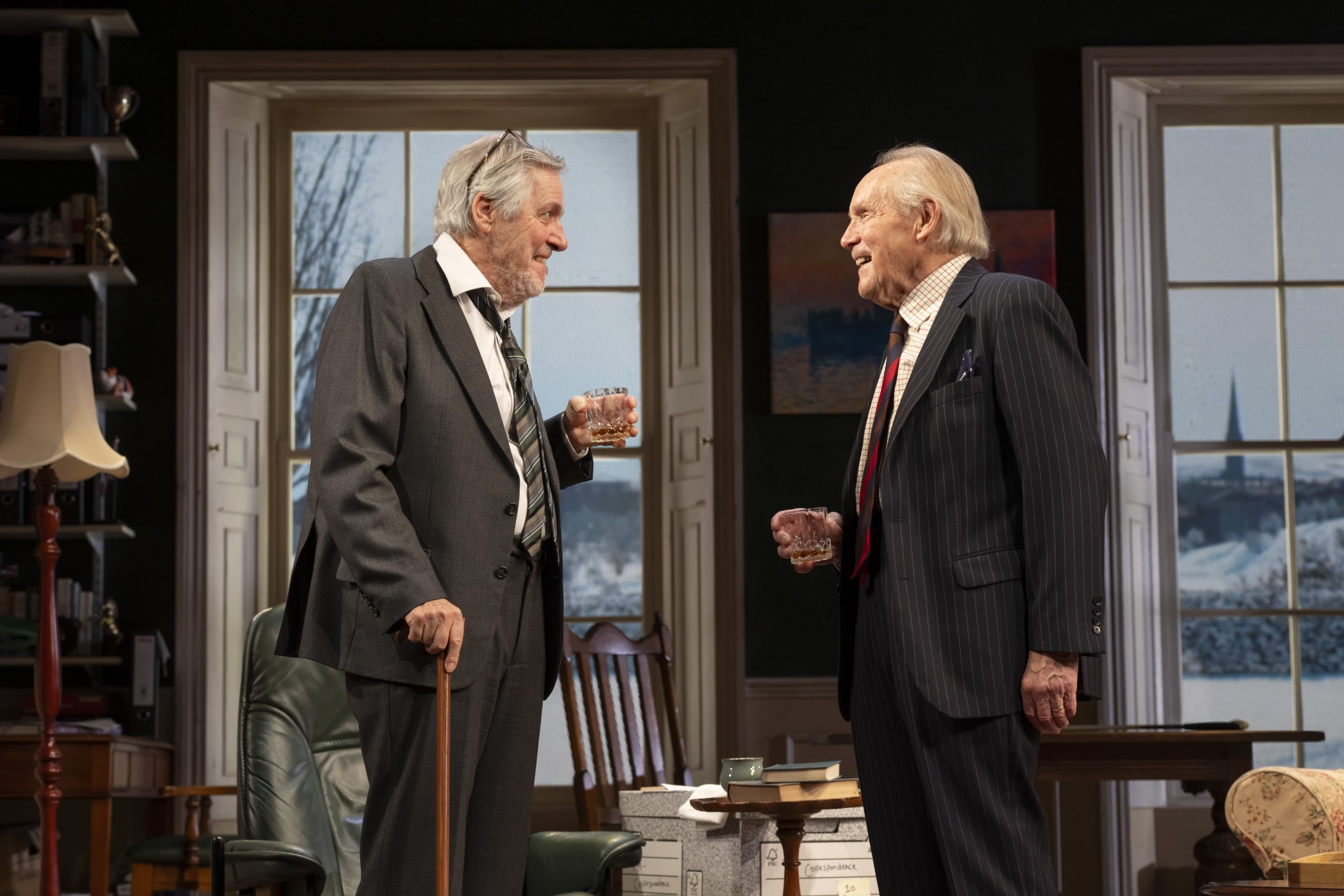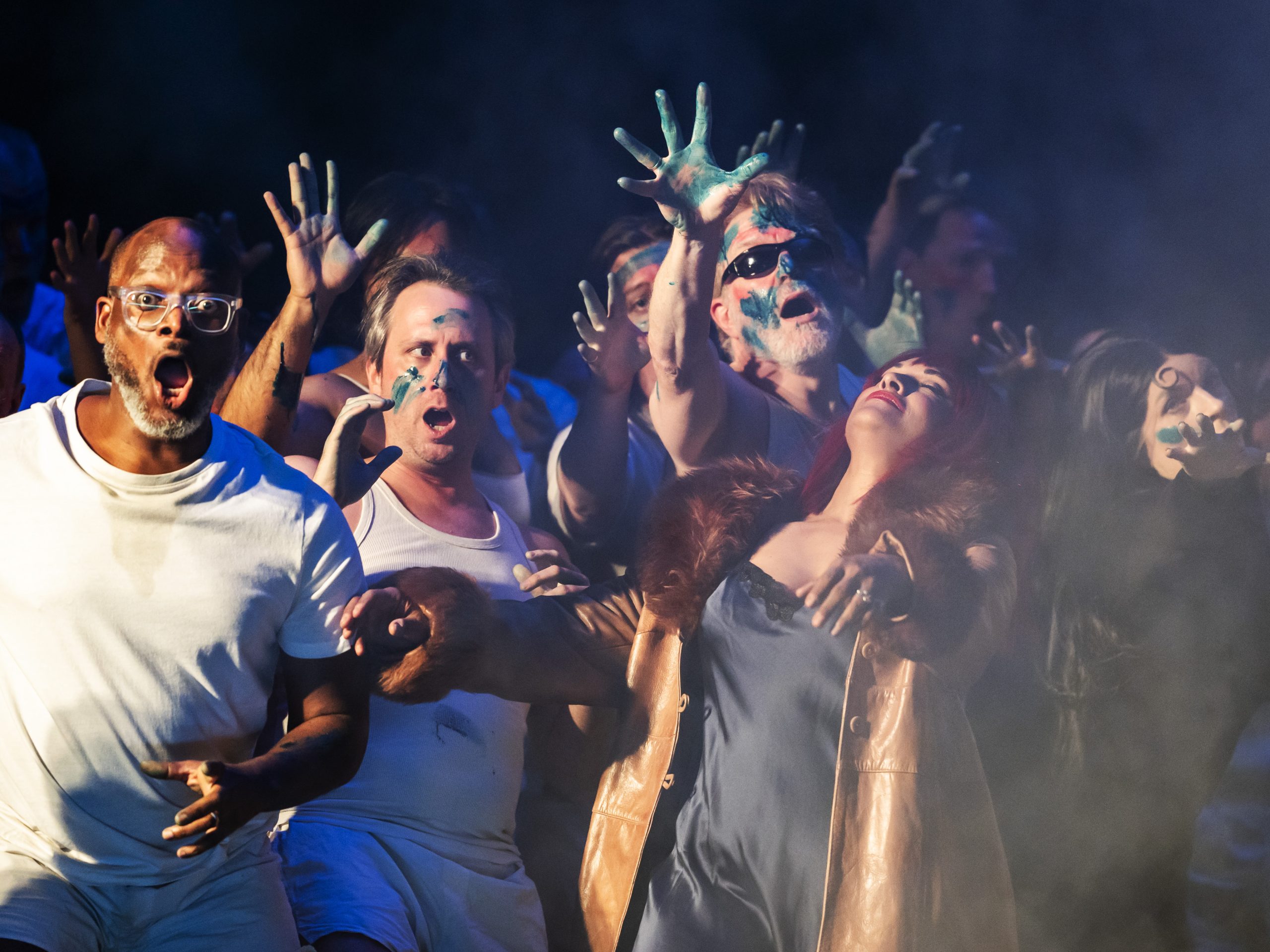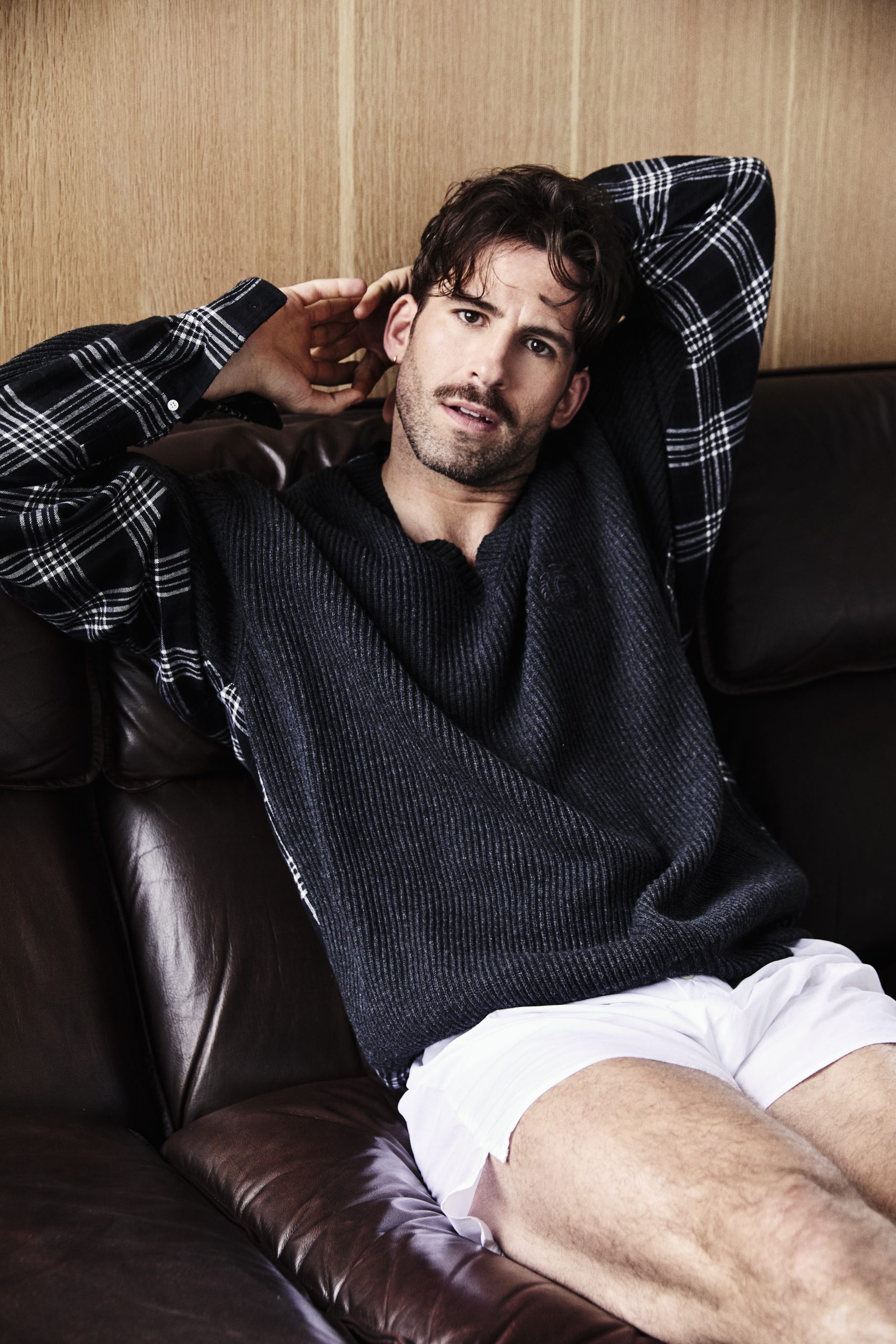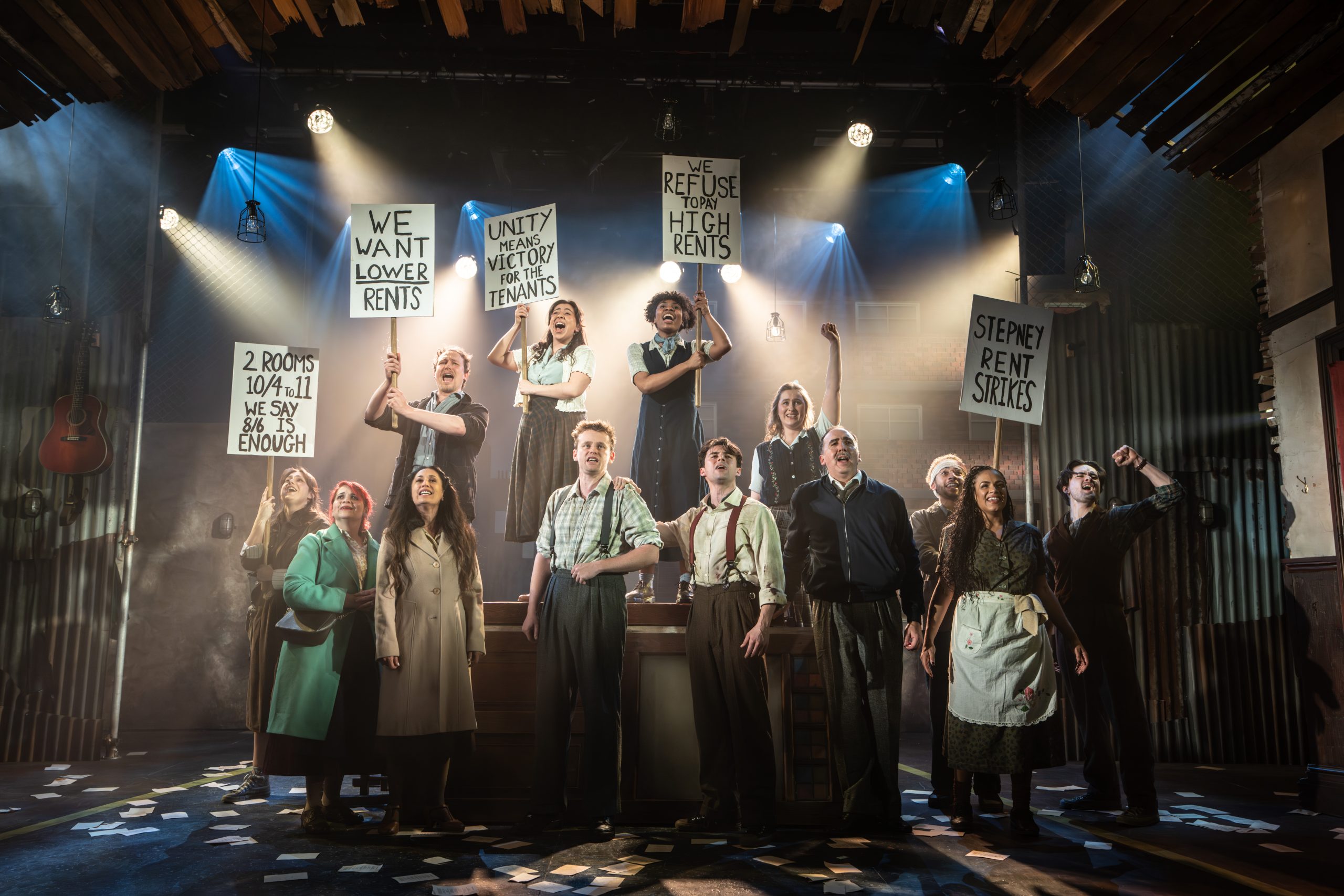After a hit run at The Public Theater in New York, Natey Jones returns to the role of Ivan in a bold new musical production of The Harder They Come at Stratford East. Directed by Matthew Xia and adapted by Suzan-Lori Parks, the show reimagines the iconic 1972 film with a fresh focus on character, context, and culture – weaving reggae, politics and raw emotion into a compelling story of ambition, resistance and identity.
We caught up during rehearsals to talk about Ivan’s journey from dreamer to outlaw, the power of reggae on stage, and why this story still hits home in 2025.
Hi Natey, so good to meet you!
How are rehearsals going? Are you in the thick of it now?
Yeah, it’s been a busy week. We had our run-through yesterday, and today was the sitzprobe – that’s the first time we get to sing with the full band, which is always a buzz. I’ve just landed in my dressing room for the first time, so it’s all feeling very real now. We work hard, but it’s exciting. I can’t wait for people to see it.
So let’s start with where all of this began. I know it was back in 2023 – how did The Harder They Come first come to you, and what drew you to the character of Ivan?
I was doing Get Up, Stand Up! at the Lyric Theatre when the audition came through. I already knew the film – Jimmy Cliff was iconic in the original – and I’d actually seen a stage version in London about twenty years ago. So when the chance to play Ivan came up, it felt huge. He’s a landmark figure. The film helped bring reggae to the world, and now this new version gives a whole new audience access to that music and story. I couldn’t say no.
I ended up doing the show at The Public in New York, my first time working in the States. The cast and creative team were brilliant, and the response was amazing. There was talk of what might come next – maybe Broadway – and now we’re bringing it to London, which is incredible.
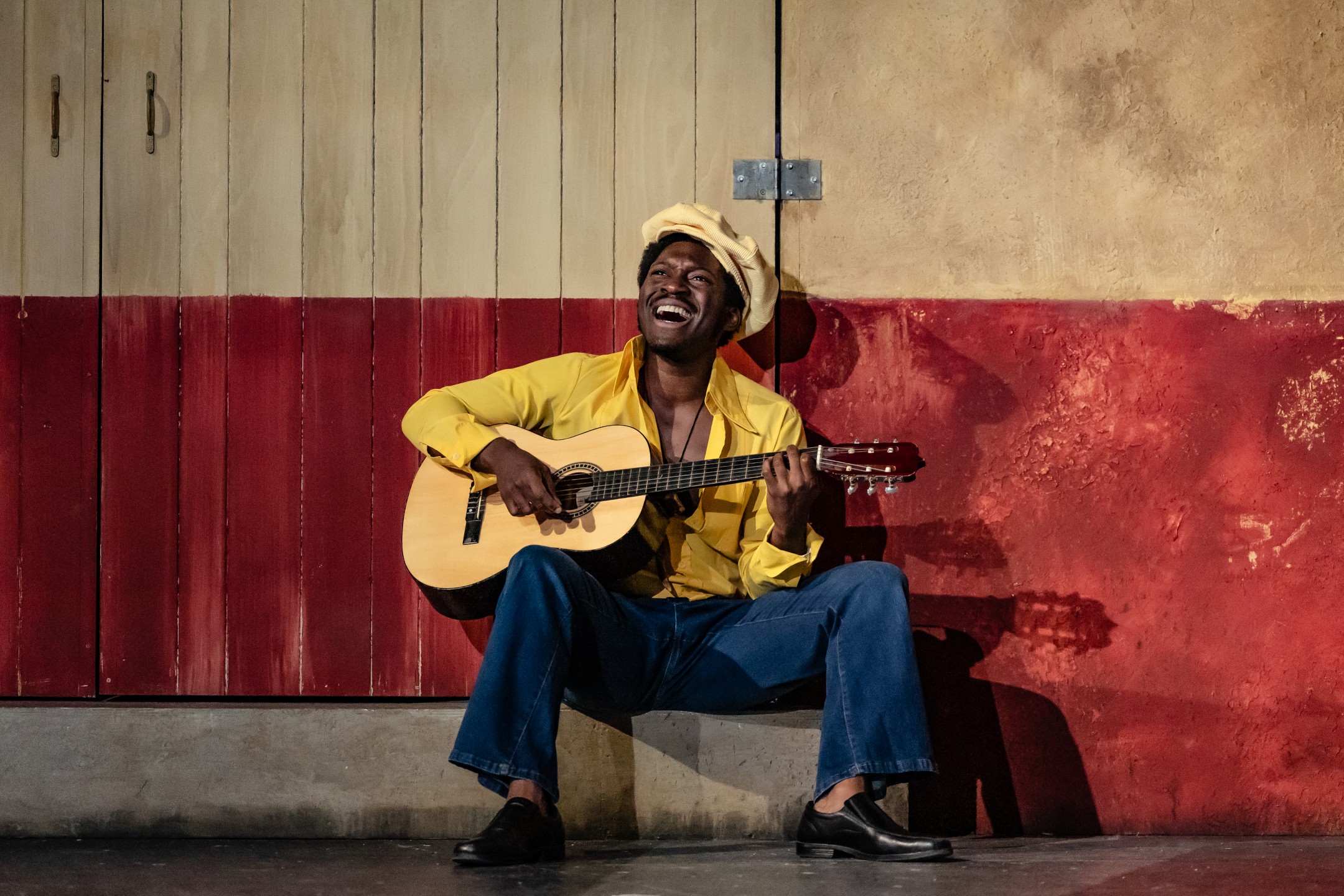
That’s amazing. And such a big moment for you – especially since they cast you from the UK when there must’ve been so many New York actors up for it.
Yeah, there was definitely pressure at first. I wondered if I’d be welcomed – but the cast were incredible. Everyone else was American or Jamaican-American, and they made me feel completely at home. I really felt the responsibility to honour the part and give it everything. I’m lucky I get to do it again.
Do you think your interpretation of Ivan has shifted since New York?
Definitely. Suzan-Lori Parks built a beautiful foundation for what we did at The Public, and she’s expanded it for this new version – tightened what didn’t quite land, and brought new depth to what did.
One word we keep coming back to is “grit.” This production leans into that more. Kingston has a rawness to it, and we’re trying to stay authentic to that energy, while still letting the music shine. The original film had that grit, and it feels right to bring that texture into the show.
One hundred percent. When I think of a musical, I think of joy and celebration – but The Harder They Come is a tough story. Ivan starts off so full of hope, and from the moment he arrives in Kingston, it all starts to unravel. How does the production handle the tension between the upbeat form and the darker content?
That tension is what makes the show so powerful. Ivan arrives with big dreams, and I really connect with that. When you say to people, “I want to be an artist,” you’re often met with doubt. But you go for it anyway. That passion drives you.
For Ivan, that same drive leads him into danger. His story’s full of tough choices. But the show still gives space for joy, dance, lightness – because Jamaican culture is like that. Rhythm and song are part of life, even in struggle. We honour that vibrancy, and I think we’ve found a real balance between the joy, humour, and pain.
I was going to ask how you make space for that vibrancy without undercutting the seriousness – but as you said, there’s hurt and pain in there too.
Exactly. That’s very rooted in my culture. You don’t wallow – you feel it, but you sing through it. There’s always movement, joy, rhythm – even in the rain. That’s the Caribbean spirit.
Some moments in the show are dark, but they sit alongside so much life and colour. The music especially – I heard the band for the first time today at sitzprobe, and people are going to go wild. That balance is something we’re still shaping during previews, but it’s coming together beautifully.
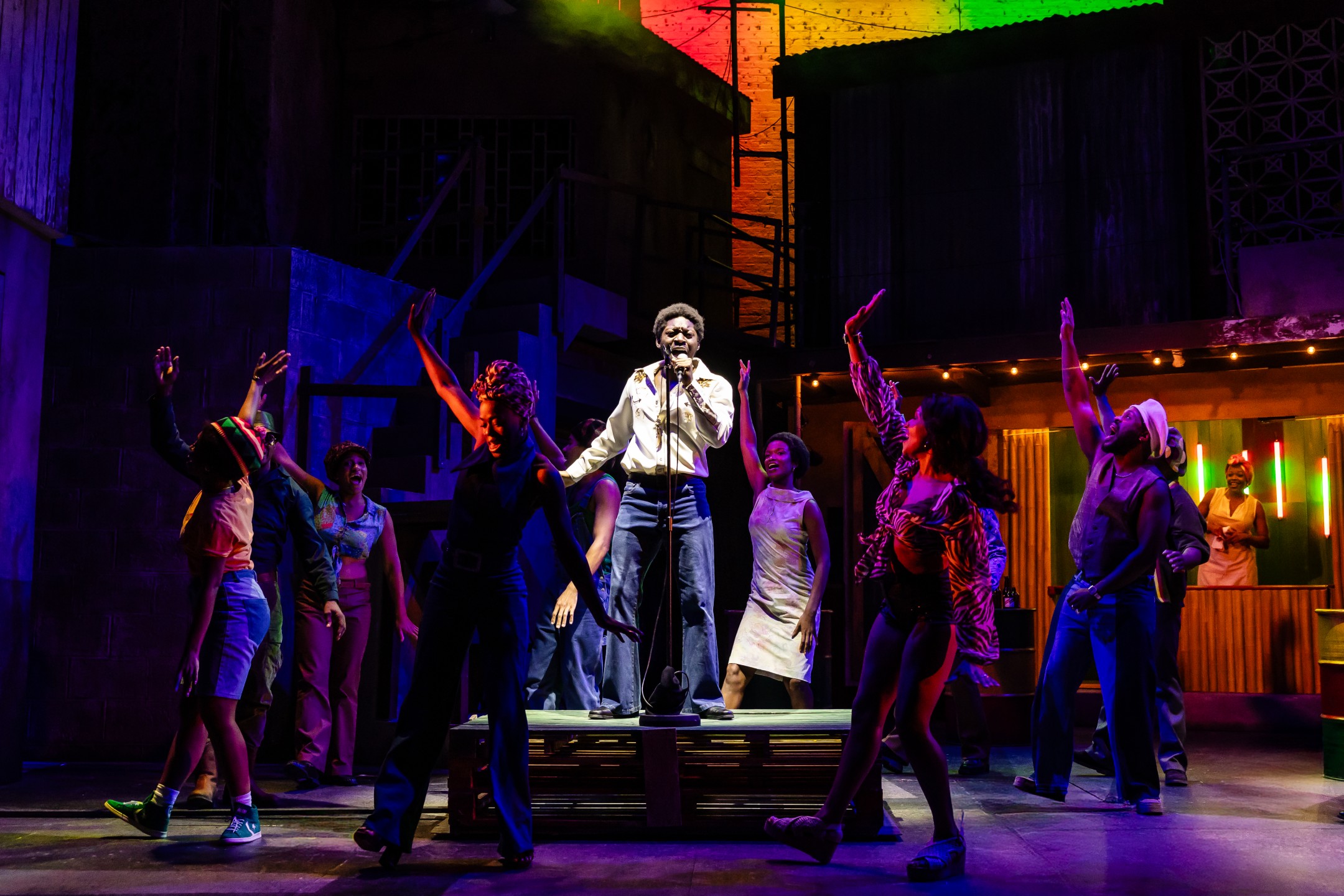
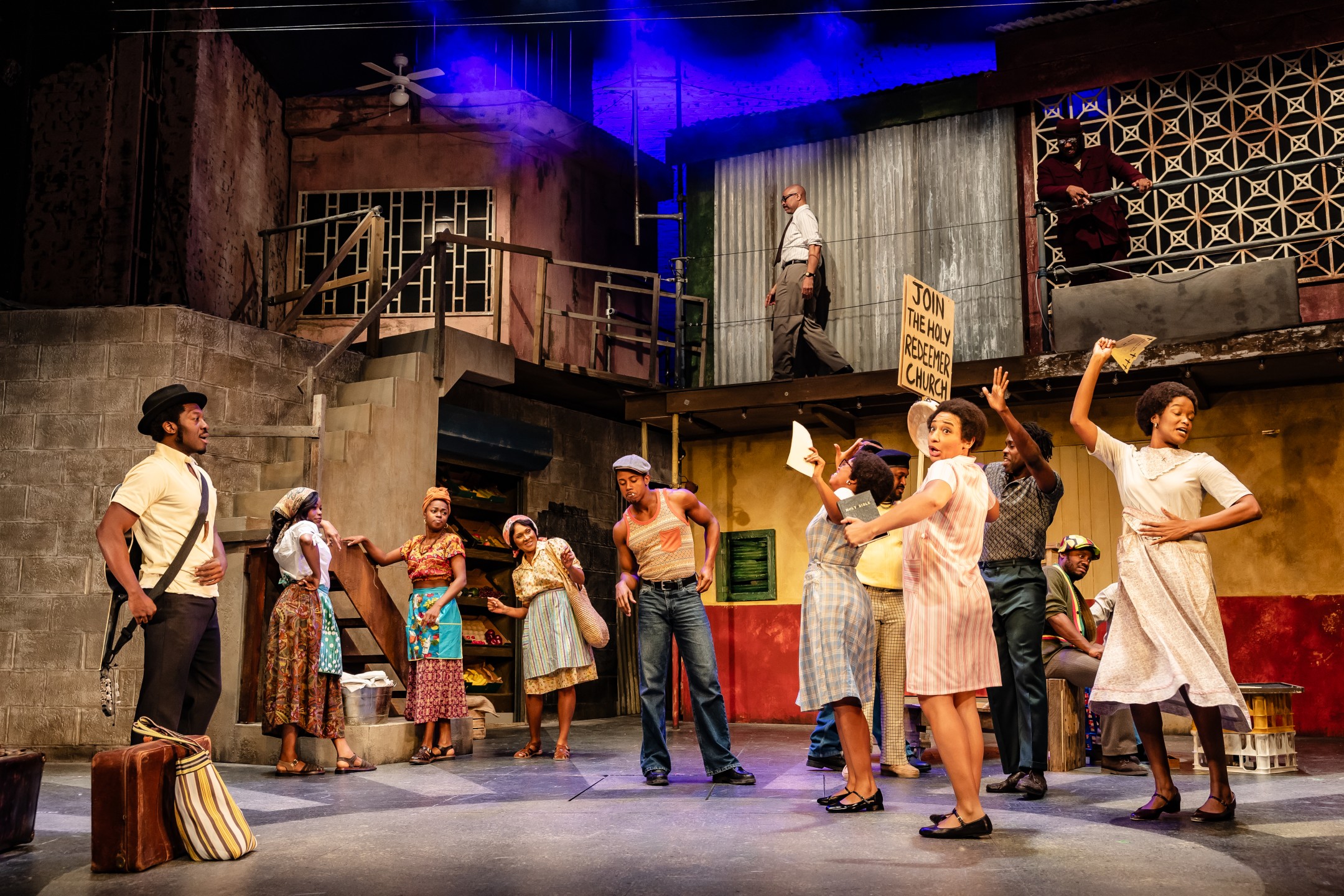
There’s a fine line between Ivan the dreamer and Ivan the outlaw. How do you navigate that tension without losing the audience’s empathy?
Great question. I never try to tell the audience what to think. Ivan’s not a perfect hero – he’s human. Some people might love him, others might not agree with his choices, and that’s OK.
The show gives more of his world – his mother, Daisy, his girlfriend, Elsa – and through them you see where he’s coming from. You don’t have to agree with someone to understand them. If I play him truthfully, even if you don’t condone what he does, you’ll get why he does it.
A lot of people don’t know the original film character was inspired by a real Jamaican outlaw named Rhyging, who became a kind of legend. When they made the film, they mixed that outlaw story with a musician’s ambition, which created this complex, iconic figure. Ivan’s always had that push-pull – fame, rebellion, morality – baked into him.
It’s almost like a Robin Hood thing. People support him not because he’s perfect, but because they understand what he’s fighting against. We’ll see how this version lands.
Do you think Ivan wants to be a hero, or is that something others project onto him?
That’s a really good question. He starts the play wanting to be a superstar – he just wants to make music. Then he gets pulled into Kingston, which is so alive and vibrant. We open with Funky Kingston, and it’s like the city seduces him. Coming from the countryside, he’s suddenly surrounded by sound, energy, possibility. He sees these Western movie outlaws and romanticises that – thinks maybe it’s a path he can walk in real life.
But the play challenges that. He watches these heroes on screen and tries to live like them, and it doesn’t work out. Real life isn’t a movie – there are consequences. The story shows the systems bearing down on him – police, religion, the music industry, even criminality – and he starts to feel the pressure from all sides. So he pushes back.
That’s where the local support comes in. It’s not just rebellion – he’s standing up to injustice. He starts off fighting for himself, but it becomes something bigger. He’s saying, we’re all being crushed by this. The stage version makes him more sympathetic than the film, where he gets angrier and more isolated. Here, you see the reasons behind it – why people might stand behind him, even if they wouldn’t make the same choices.
You go through everything in this role – love, rage, swagger, heartbreak. What’s the most emotionally demanding part for you?
Ivan wears his heart on his sleeve. He throws himself into things – love, ambition, anger – and that emotional intensity is constant, which makes the role challenging.
But the hardest part comes toward the end, when he’s questioning his faith, his choices, and what’s left of his love. There are a couple of songs in that moment that really hit deep.
What’s especially powerful in the stage version is the relationship with his mother, Daisy. That wasn’t really explored in the film. She’s a grounding force – someone pure, trying to keep him from going off track. Their final encounter is heartbreaking. She tells him, ‘you’ve become everything I warned you against.’ And he’s standing there going, ‘but I was trying…’
That moment, and the echo of that lyric – “you can get it if you really want, but you must try and try and try” – that’s the soul of the show. It’s hopeful and devastating at the same time.
The musical gives Ivan more emotional nuance than the original film – adding heart, relationships, and a clearer sense of injustice. How important is that shift for you, and how do you see it reflecting the industry today?
Yeah, I think you really feel his struggle now. He arrives in Kingston, gets robbed, tries to break into music, gets pulled into the wrong crowd. Giving more time to those early relationships, especially with his mother, helps ground who he is before everything spirals. That foundation adds weight to his journey.
There’s also the scene with Mr Hilton offering him $20 for a track that could make thousands – it’s outrageous, and it still happens. We’ve talked about that a lot in rehearsals. If you’re helping create something – shaping the show, not just showing up to perform – then you should have a stake in it. Not just a wage. That mindset needs to shift. Creators deserve investment too, not just producers and investors.
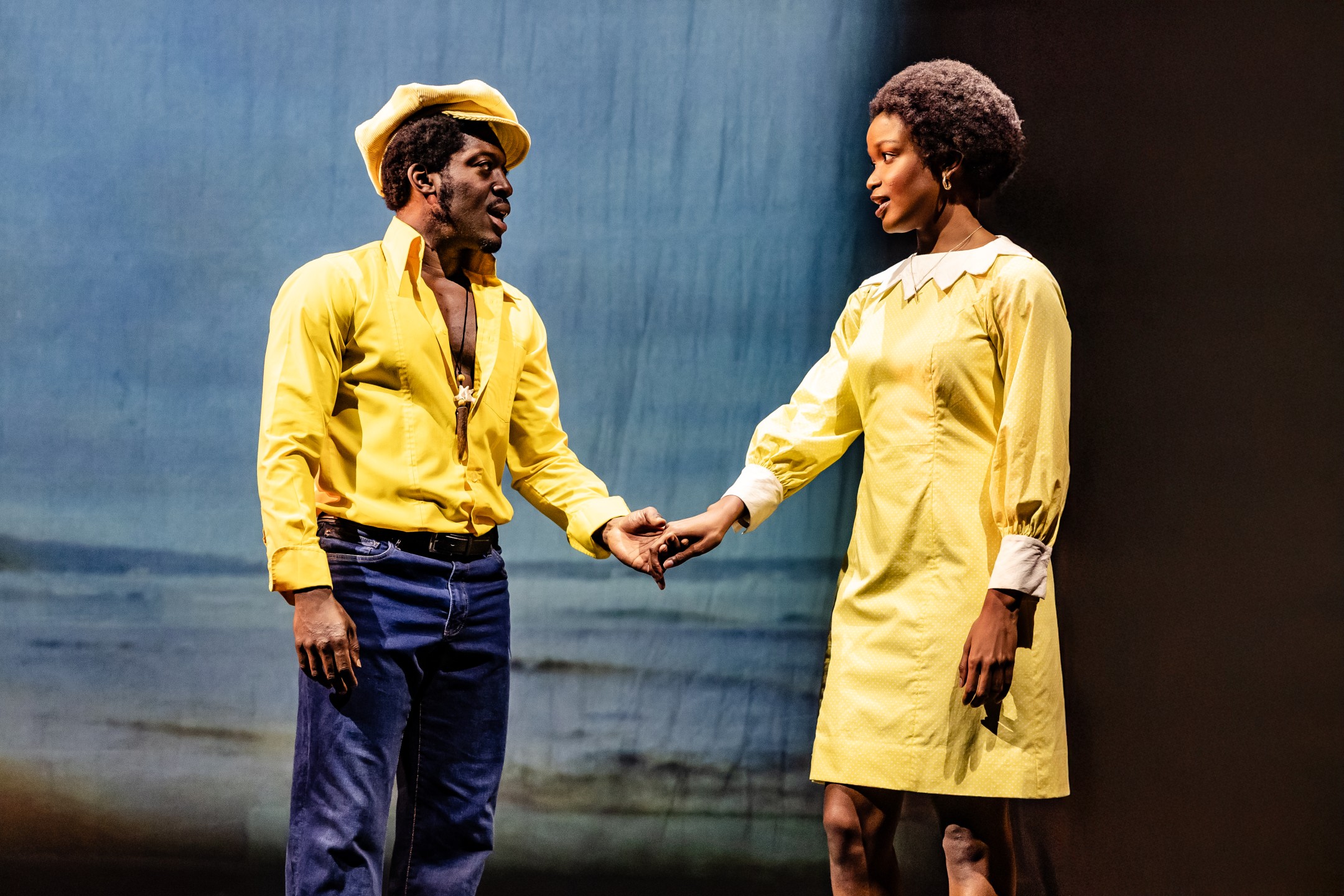
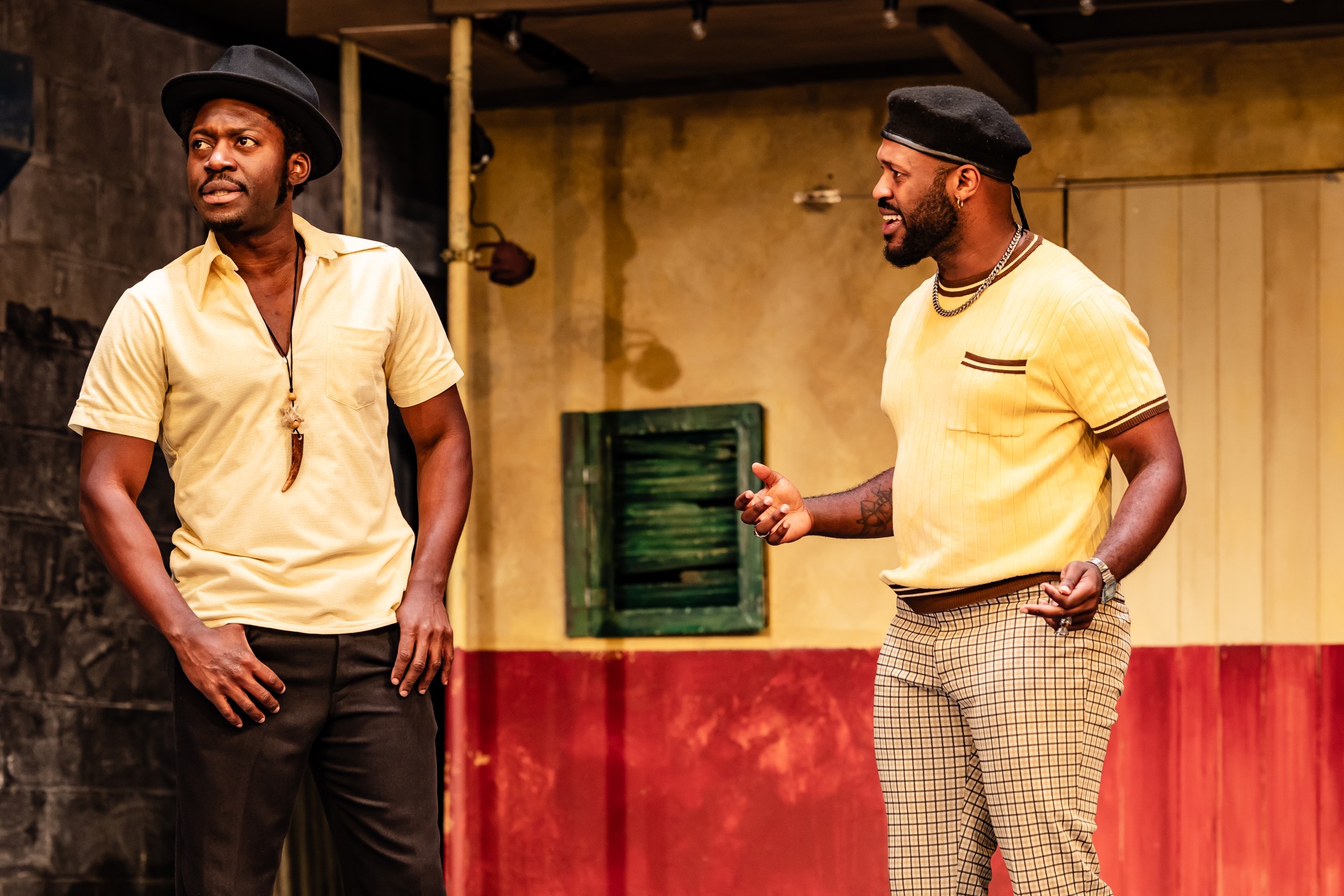
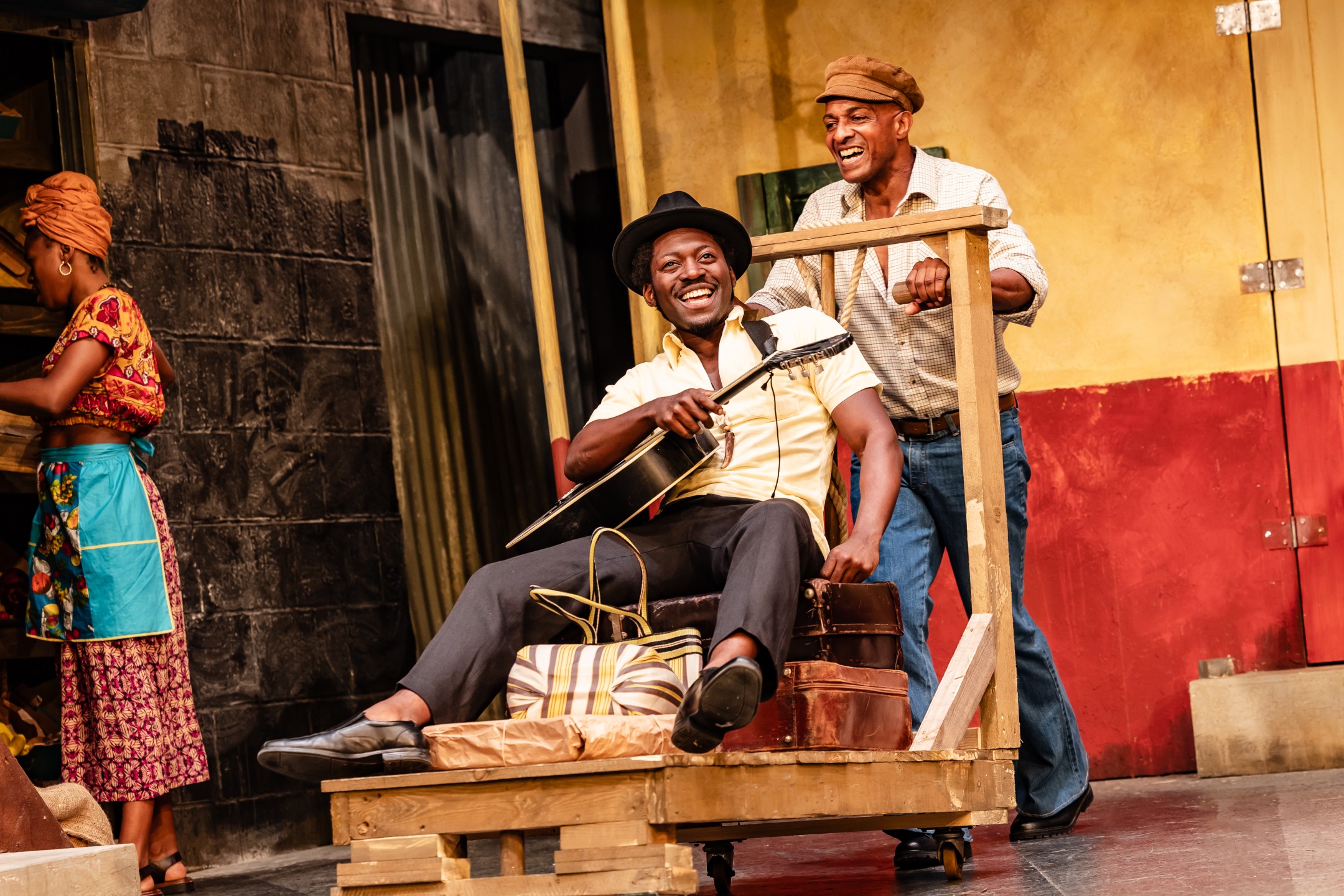
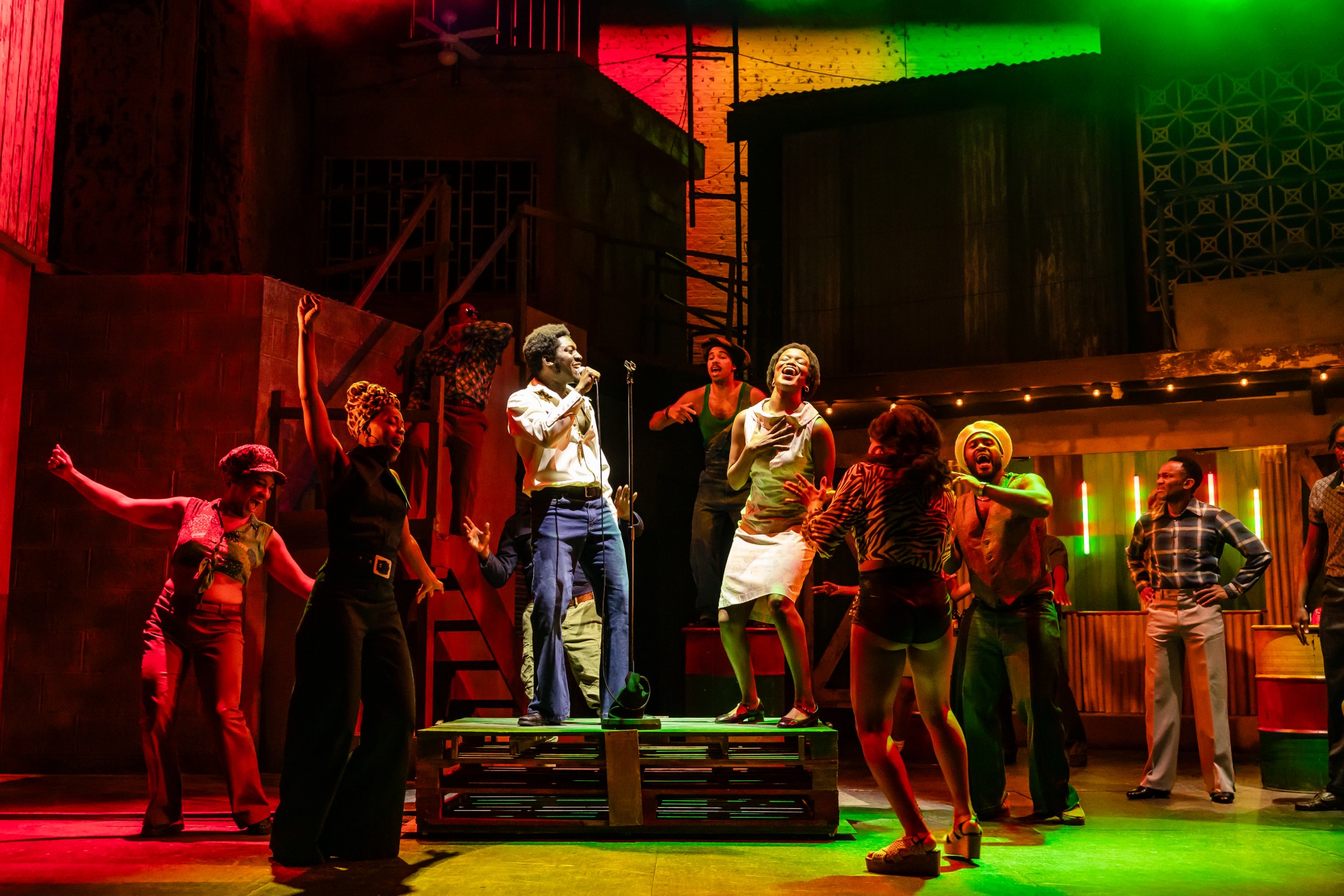
Obviously, Jimmy Cliff is an absolute legend – and you’re singing his songs live on stage. What’s it like stepping into those vocals? Do you try and channel Jimmy, or are you making them your own?
I think channelling Jimmy Cliff would be impossible – he’s one of a kind. But it’s an honour to even try. I’ve approached Ivan as his own character, without trying to imitate Jimmy, but the music is incredible. It takes me back to my dad, my granddad – the whole vibe of that time. I’ve even got the sideburns growing in! It’s like stepping into the 70s and paying tribute to the people who lived through it. If I catch even a bit of that stardust, I’ll be happy.
Were there any songs that surprised you emotionally when you performed them in context during the show?
Absolutely. Many Rivers to Cross is incredible – it comes out of such a raw moment in the story, and every cast member is pouring their soul into it. Sitting in Limbo is another one, right when Ivan’s weighing up his fate. And of course, The Harder They Come lands at a major turning point – when Ivan pushes back and demands to be heard. That song is fire. I hope it becomes one of the iconic moments of the show.
Do you think reggae works differently in theatre than it does in film or concert? What does it do to an audience in that space?
Definitely. Reggae has this energy – you feel it in your body. Even just talking about it makes me move. Especially with someone like Tony Gayle on sound – the bass is going to be right there with us. He worked on Get Up, Stand Up! too, and the sound was amazing.
We’re working with theatrical tools – musical underscoring, applause moments, scene transitions – but we’re also staying true to reggae’s roots. Sometimes you’ve got bass just rumbling under a scene, building tension. We’re giving audiences something familiar but also unexpected. It’s a tricky balance, but it’s exciting.
There’s something about reggae – and music in general – that just makes you want to move. But in traditional British theatre spaces, audiences can be pretty reserved. Do you think audiences will engage differently with this show?
Absolutely. We’re representing Jamaican culture, and that comes with a different energy – we’re emotional, loud, vibrant. It’s normal for us to laugh, cry, sing, shout – and all of that’s welcome.
Stratford East is right in one of London’s most diverse areas, with a big Afro-Caribbean community. So I think the vibe will reflect that. Traditional British theatre has this idea that silence is respectful – but for us, it’s more of a conversation. Call and response, that energy in the room, it’s part of the experience. I think audiences here will feel that. They’ll move, they’ll react – and we welcome it.
This is your first time working with Matthew Xia – how has his direction shaped this version of The Harder They Come?
Yeah, it’s been amazing. Matthew feels deeply connected to the material – culturally, emotionally – and that shows in how he approaches it. As a British-born director with Jamaican heritage, he’s committed to telling the story authentically and honouring the culture behind it.
We’ve had loads of conversations in the room about Jamaica in the 1970s – what independence meant for the country, how that context shapes Ivan’s journey. And the team he’s built reflects that respect. The music, the movement, the storytelling – it’s all about representing the culture truthfully and with love.
Shelley Maxwell’s movement direction has been incredible – grounding us in tradition while giving us space to play. The rehearsal room’s been full of joy, freedom, and creativity. That spirit absolutely comes across on stage. You’ll feel the connection between us – it’s a really special cast.
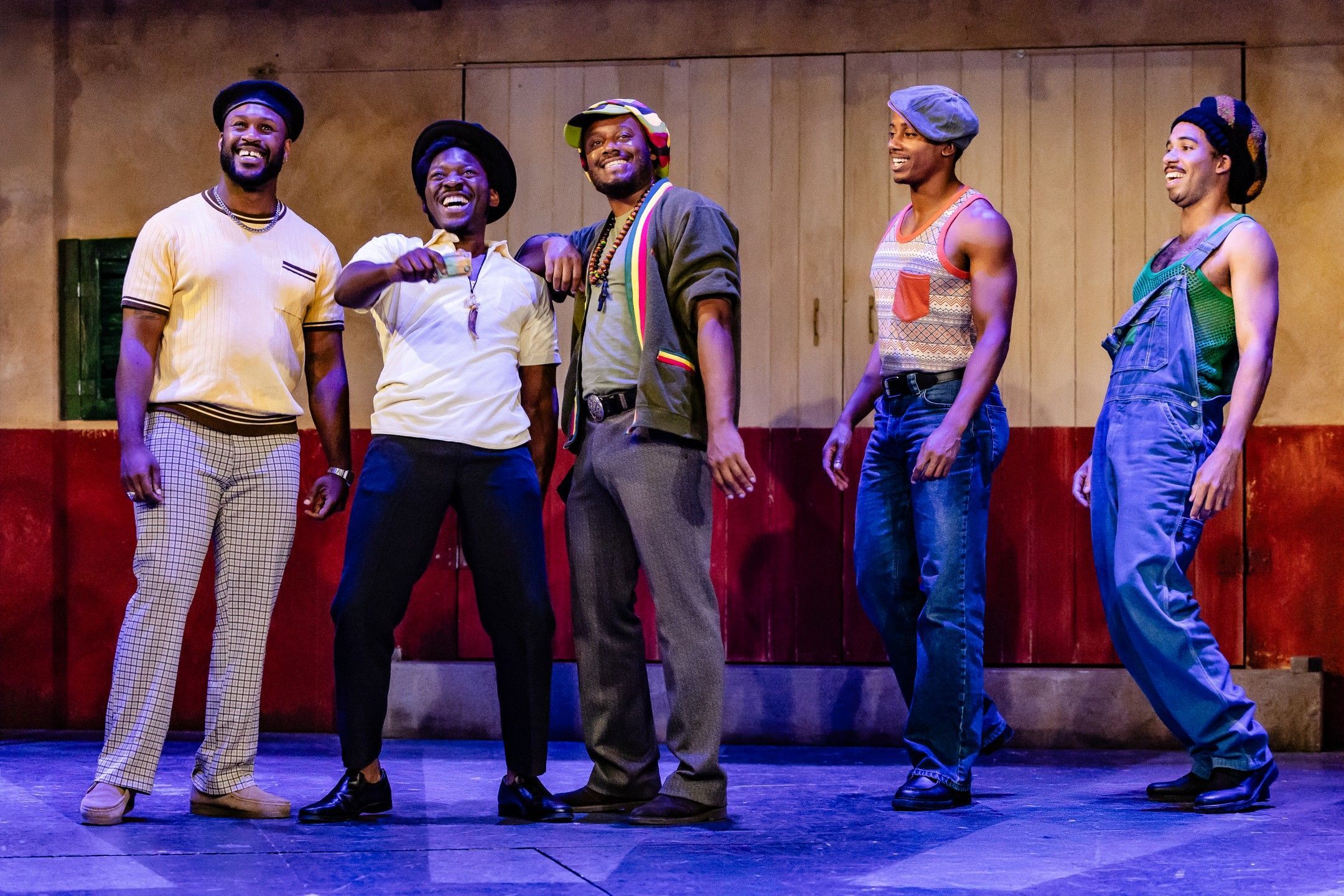
What was the rehearsal process like? With so much music, politics and raw emotion in the mix, did it feel different from other musicals you’ve worked on?
In some ways, yeah – though I’ve done shows like Tina and a couple of Jamaican musicals too, so I’m used to exploring that cultural toughness, that strength through resistance and music.
But this show fuses everything – politics, struggle, music, emotion – into one. Whether it’s Tina Turner singing about survival or Bob Marley on revolution, that link between story and song has always been there. The Harder They Come follows that tradition too.
You get moments where a song suddenly lands differently because of the context. Like Rivers of Babylon – there’s a moment where Ivan’s mother sings it to soothe her soul. It’s deeply emotional. So sometimes the music is a character’s inner voice, sometimes it’s underscoring – but it always sits at the heart of the story.
You’ve taken on a lot of roles with powerful themes – Get Up, Stand Up!, Small Island, Malama’s Tale. Is that something you seek out, or do those projects just find you?
I’m drawn to stories with heart and purpose. I studied law once, so I’ve always cared about justice and staying true to yourself. Ivan’s got that – he’s determined to be who he is, no matter the cost.
I love complex roles. In Pretty Red Dress, I played a man grappling with identity – that was fascinating. But it’s not always about the message – sometimes it’s the style. I’ve done Shakespeare, musicals, abstract theatre like Malama’s Tale – I just love stretching the craft in every direction I can.
Do you feel a sense of responsibility as a Black actor when taking on these kinds of roles?
Yeah. First, I have a responsibility to myself – to stay stretched, stay scared, stay creatively hungry. If I’m not a bit scared of a role, I probably won’t give it everything.
But I also know younger actors might see me and feel something – recognition, encouragement. That matters. So I always try to perform in a way that’s true to who I am and where I come from.
When I played Aaron in Titus Andronicus, I wanted to show a Black man standing strong, not ashamed, in front of a mostly white audience. That felt important. And if that helps other actors feel empowered to stand tall too – I’m proud of that.
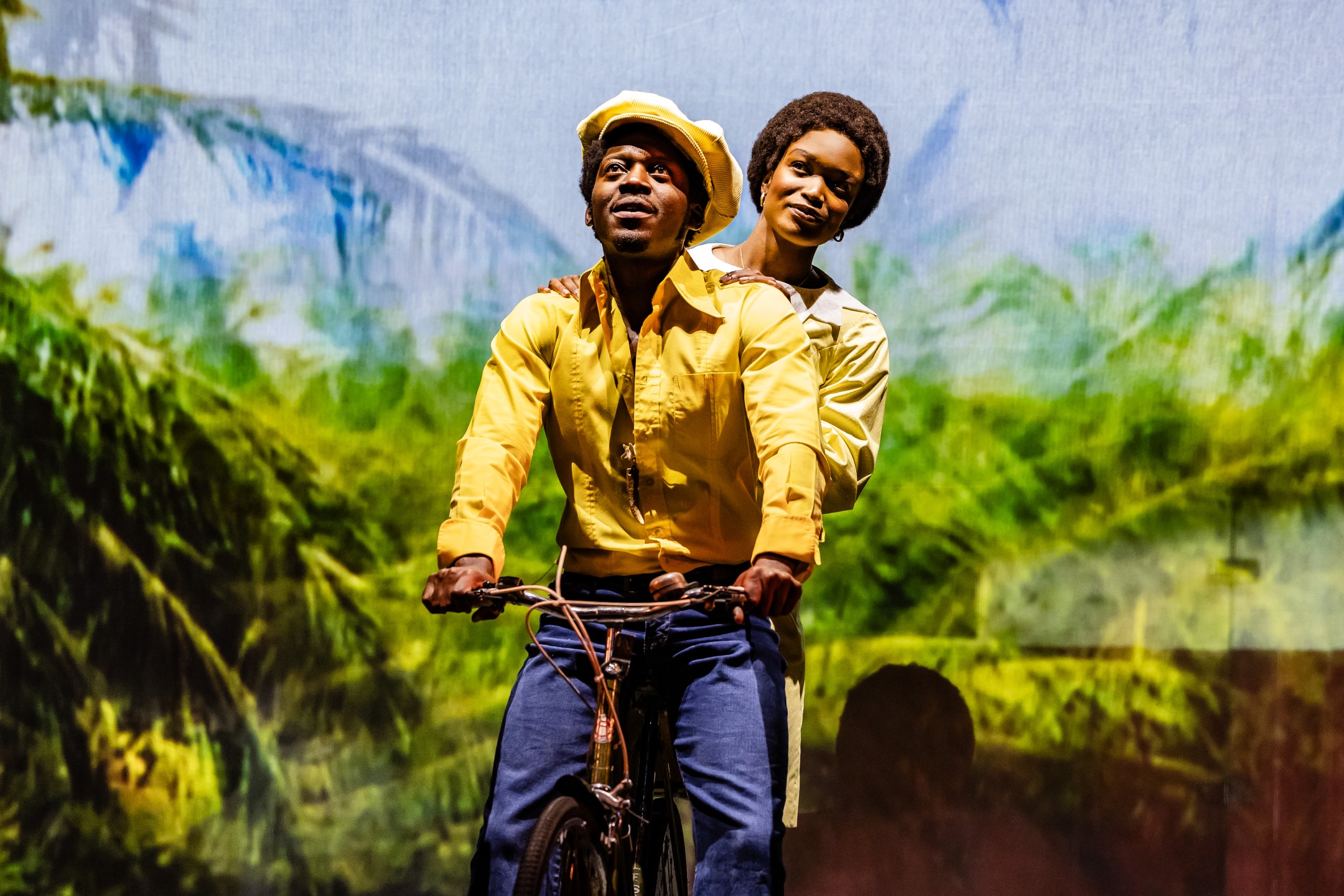
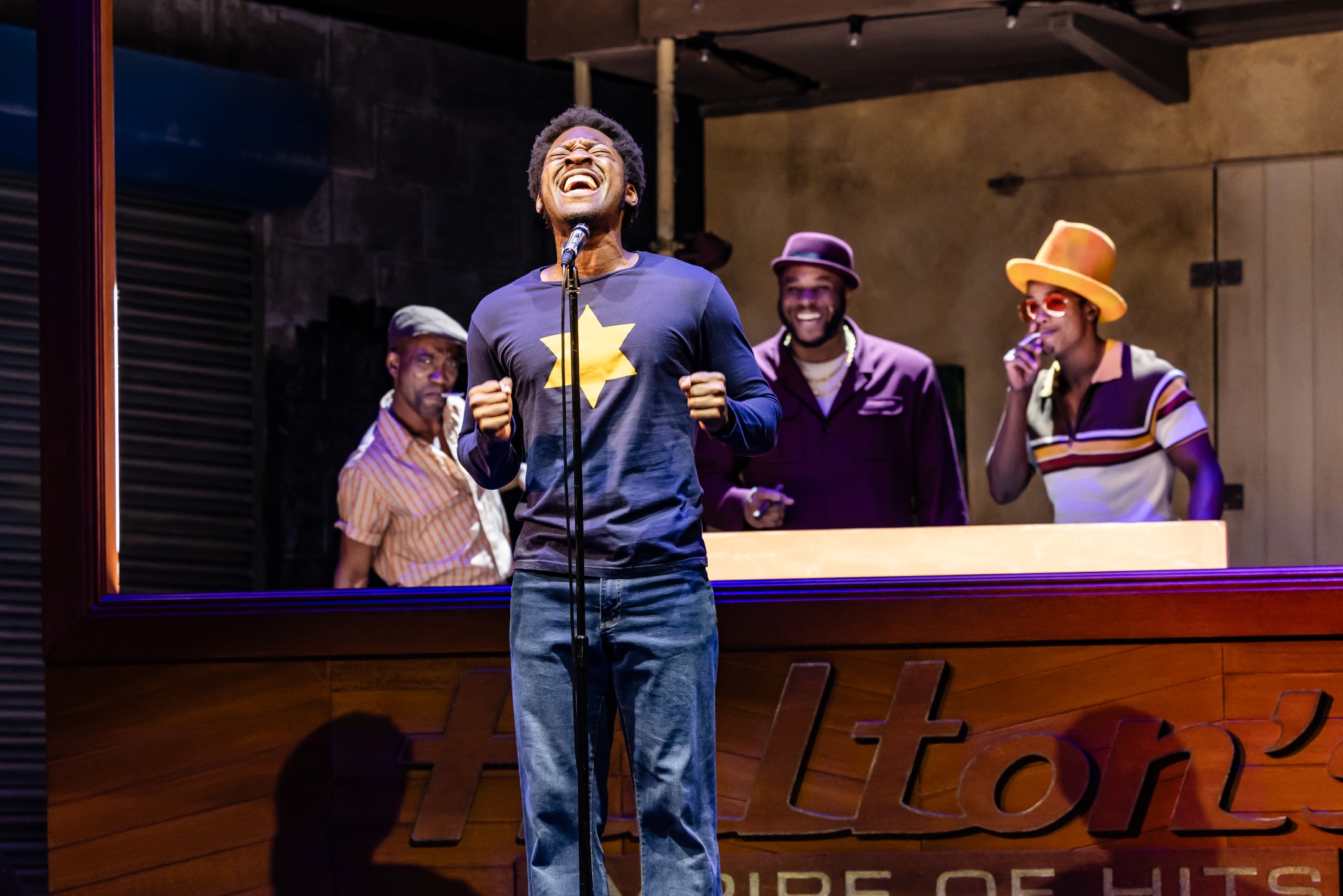
And what’s your take on the state of the industry right now? Are we moving forward fast enough in terms of representation – and if not, what needs to change?
It’s a conversation we have to keep having. Representation – whether race, disability, religion, class – is never “done.” We don’t hear enough from the people who don’t have a voice. In the Black community, for instance, there’s been a growing conversation around hair – the need for more Black professionals in theatre and on sets who know how to work with it. That stuff matters.
More broadly, the work we make should reflect real life. That means asking hard questions – who gets cast, who gets seen, who gets the opportunities. The question isn’t just “can someone play that role?” – it’s also, “should they?” If a culture is underrepresented, and people from that background are still waiting to be given space, then we have to ask whether it’s fair for someone else to take that role.
Of course I’d love to play characters from all over the world – that’s part of the joy. But acting is also a job. If people are watching others represent their culture without getting that chance themselves, that’s not just artistic – it’s economic. We need to keep making space and keep having those tough but vital conversations.
Is there ever a moment in the show where you think – and this comes back to that whole “gritty but a musical” thing – that it’s almost too much fun for what’s happening to Ivan at that point?
No, actually, I don’t think so. The way the songs are orchestrated, and where they land in the story, it always feels absolutely authentic to what’s happening in that moment. It never jars or feels out of step – everything is woven together so beautifully and powerfully. The music is there to support the storytelling, not distract from it.
And what do you want people to walk away with after seeing the show?
That’s a very good question – and a difficult one. I don’t like to dictate to the audience. My job is to create and present a world, and then it’s up to them to take from it what they will. It’s like looking at art – everyone sees something different.
What I do hope is that they feel the energy. We’re bringing amazing vibes, and hopefully the audience connects – whether they fall in love with the characters, get frustrated by them, or feel challenged by what they see. That’s the magic of theatre – watching real people live real lives in front of you.
And for anyone with Caribbean heritage – and even those without – I hope they’re transported. That for however long they’re sitting there, they feel like they’ve stepped into 1970s Jamaica, with the music, the spirit, the struggle, the joy. That’s what I want. For everyone to be transformed and transported.
Natey Jones is starring in The Harder They Come at Theatre Royal Stratford East until 25th Oct 2025.
Book your tickets at stratfordeast.com
Words by Nick Barr
Photography Danny With A Camera

